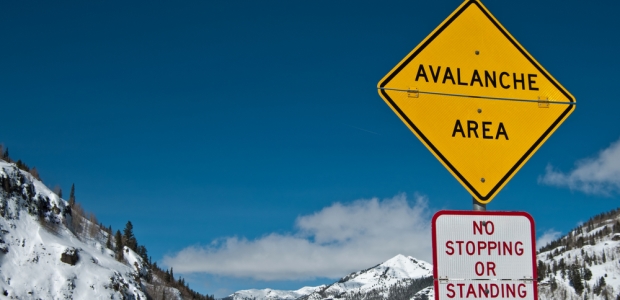
Colorado DOT Warns Backcountry Users About Leaving Unattended Vehicles
"Always obey road closures set in place for avalanche control mitigation and wait until authorities open the highway to ensure snow slide operations have been completed and roads cleared," said Matt Bennett, the CDOT maintenance foreman who supervises operations for US 50 Monarch Pass. "Backcountry users should never leave vehicles near or adjacent to snow slide areas, which are always well marked with signs."
Avalanche area warning signs in Colorado advise that no driver should stop or park at that location, and the Colorado Department of Transportation posted a reminder Jan. 4 to backcountry users in the state about this. For CDOT, recent snowstorms mean deploying snowplow operators and winter equipment to clear the highways and keep the roads safe for travelers.
Outdoor enthusiasts should be aware of avalanche conditions in the high country and any avalanche control operations that may be planned, the department noted. Mountain passes frequented by recreational enthusiasts in south-central Colorado include US Highway 50 Monarch Pass; Colorado Highway (CO) 17 La Manga and Cumbres Passes; CO 114 Cochetopa Pass; and US 160 La Veta Pass.
"Always obey road closures set in place for avalanche control mitigation and wait until authorities open the highway to ensure snow slide operations have been completed and roads cleared," said Matt Bennett, the CDOT maintenance foreman who supervises operations for US 50 Monarch Pass. "Backcountry users should never leave vehicles near or adjacent to snow slide areas, which are always well marked with signs."
The state agency advises those who use the backcountry to be careful when parking and leaving vehicles along the roadway. Anyone leaving a vehicle unattended on the side of the road runs the risk of breaking the law and having his or her vehicle towed by law enforcement. Backcountry users are reminded they should park only in clearly marked and designated parking areas, typically found at the summit of mountain passes and at some trail heads.
Vehicle owners who park where they shouldn't run the risk of being trapped with snow pushed by the plow, and vehicles left on the side of the road also make plowing difficult for road maintenance crews. "Our main objective is to clear the roadway as quickly and efficiently as possible so that the highway is made passable and safe for all travelers," Bennett said. "Our crews work in all sorts of weather conditions. When visibility is low and a plow comes upon a vehicle parked on the side of the road, there is potential for a collision. The vehicle could be damaged by the passing plow. Plus, this puts our operator's safety at risk and operations get behind schedule because of needed repairs or replacement of our own CDOT equipment."